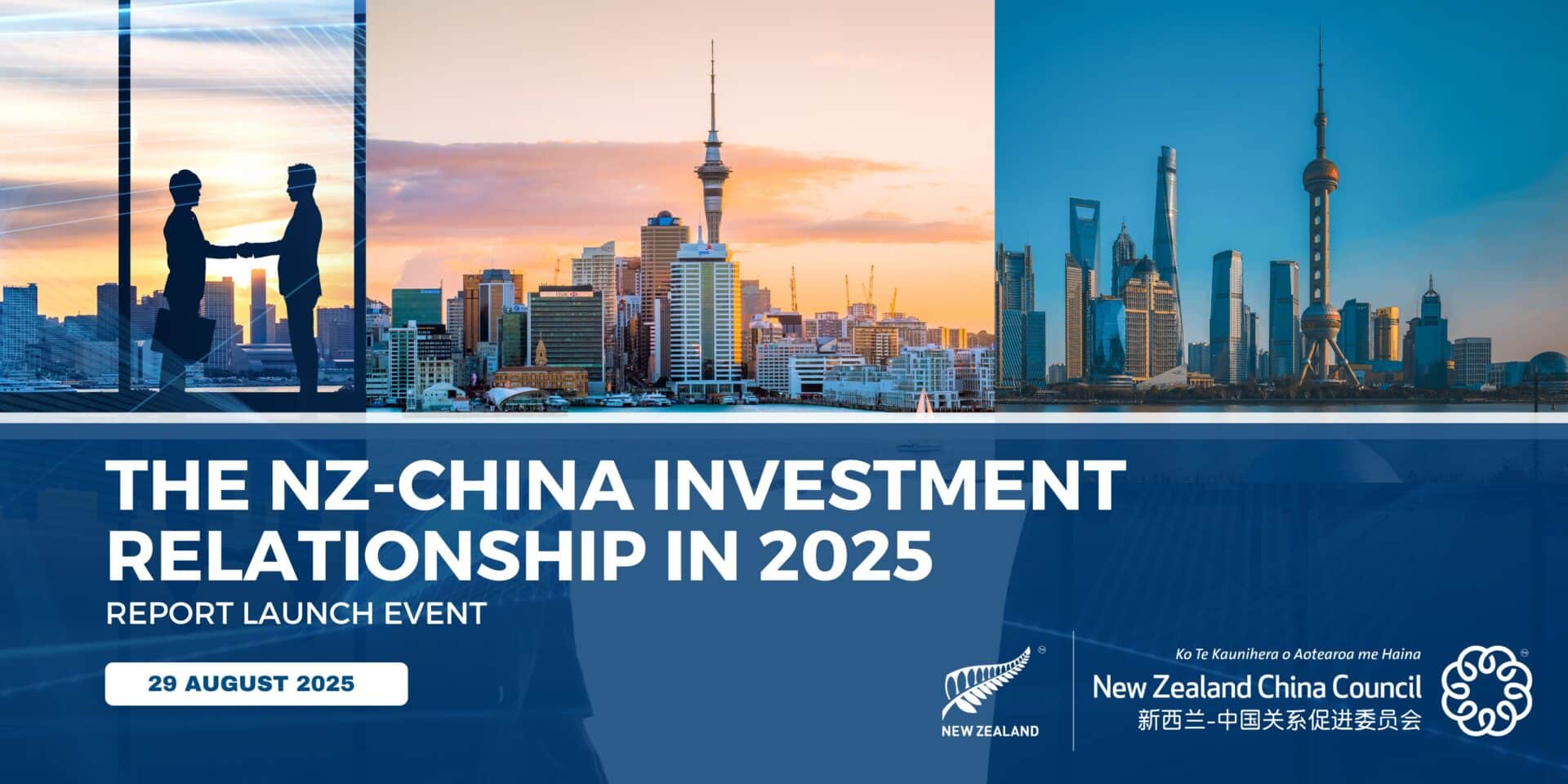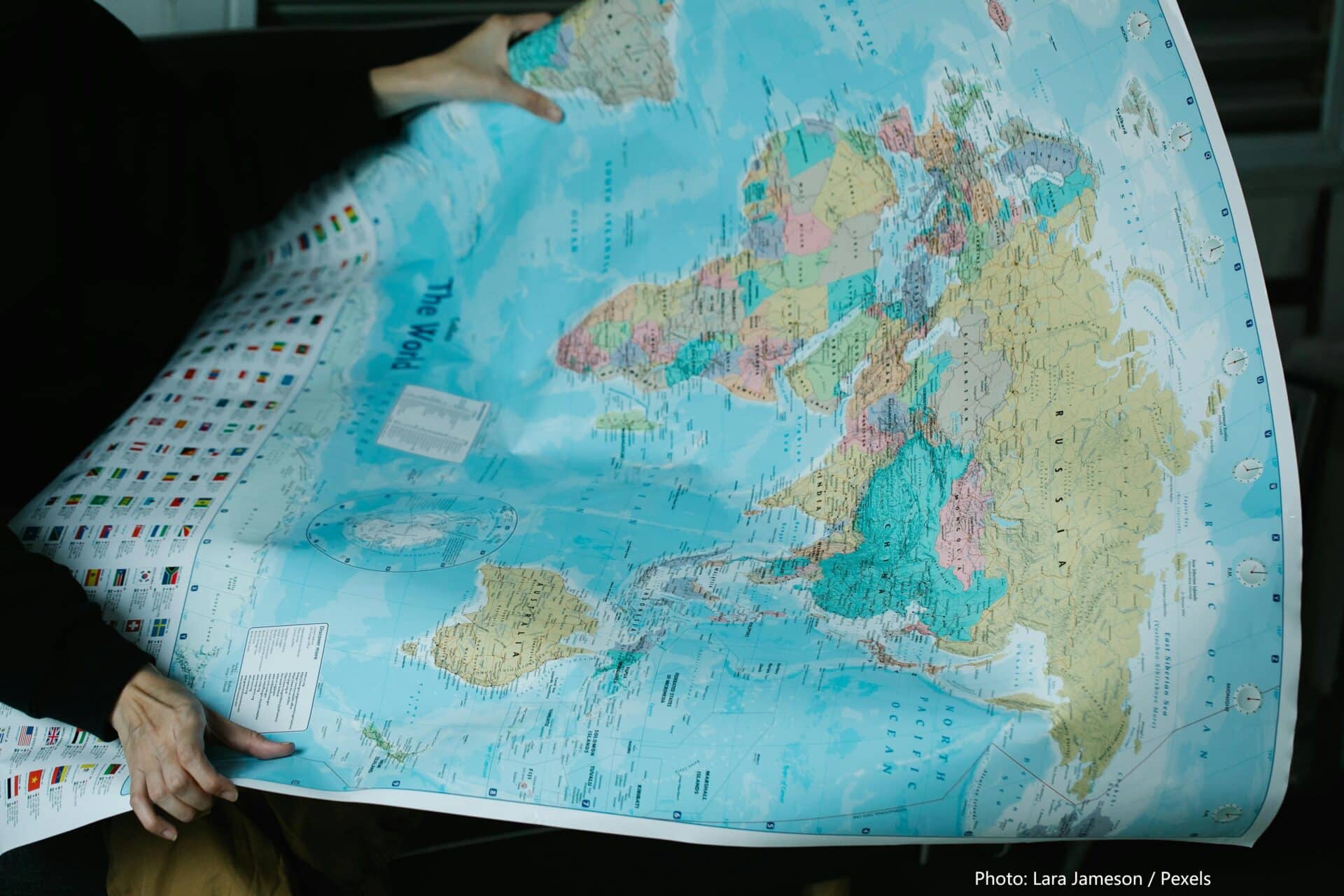Remarks to the New Zealand China Friendship Society 70th Anniversary Conference
Our Chair John McKinnon delivered a speech to the New Zealand China Friendship Society 70th Anniversary Conference in Auckland on 18 June 2022. Below is the full text of his remarks.
The New Zealand China Council is a New Zealand led, New Zealand funded body which acts as a cross-sector peak body for the New Zealand China relationship. The Council was established in 2012, 10 years ago, as part of the Government’s NZ Inc Strategy for China. The Council’s unique value proposition derives from its role in bringing together a high-level influential group of key players, private and public sector, to engage on the relationship.
My first acquaintance with the New Zealand China Friendship Society came in the late 1970s, during my first assignment in Beijing. It was well known to all New Zealand diplomats that by far the most famous New Zealander ever to live in China was Rewi Alley. In fact so famous was he, and so far apart the circles in which we moved, that it was not the case, as some seemed to think, that Rewi was daily present in our working lives. But he was present, and most New Zealanders of any distinction who visited China at that time made the pilgrimage to Rewi’s home to learn from him dimensions of China experience that they could not gain from any other New Zealander.
Rewi’s China host was and had been for some time the Chinese People’s Association for Friendship with Foreign Countries – 中国人民对外友好协会 – ‘You Xie’ for short. That organisation, and its fellow societies in many countries, was established at a time when China did not have diplomatic relations with many countries of the world. Where politicians could not go, friends sometimes could, and in this way You Xie and its outreach contributed to building understanding of the then new China.
And this was a task which needed to be undertaken. Even without the diplomatic impasse of Taiwan, understanding the new China would have been difficult for people in New Zealand. The expulsion of foreign missionaries and foreign businesses, the Korean War, the establishment of the iron curtain in Europe, all wrapped up in the ideology of Communism, presented an almost insurmountable challenge to informed debate on what was happening in China and its implications for this country. Those who knew China most intimately – the missionaries and businesspeople who had been expelled, the old established Chinese community with its roots in Guangdong, were amongst the least likely to feel well disposed to this latest upheaval in that ancient land. And those such as Alley who did speak out on behalf of the new China were quickly labelled as fellow travellers.
These were the very specific circumstances in which the New Zealand You Xie was born. It is enormously to the credit of its founders that they persisted with their commitment to building understanding of China in New Zealand, entirely against the odds. So much so indeed that I suspect many of them took a perverse delight in being apart from the mainstream. And to the extent that there was a current of editorial and educated opinion critical of New Zealand keeping its distance from China, it was in spite of China’s communism.
With the establishment of diplomatic relations between New Zealand and China in December 1972 the role of the Friendship Society changed almost overnight, to swimming with instead of against the tide. It was now playing into a society which was avid for knowledge and experience of China.
Since 1978 and the beginning of reform and opening up I would suggest that our perceptions of China have gone through several phases, largely as a result of events and developments in China itself. June 1989 was a punctuation mark which could not be ignored, but it did not in fact lead backwards as some feared at the time. Yet it did make your task of interpreting the complexities of China more challenging, and that challenge remains. As one of my predecessors, Tony Small, observed some time ago, it is a mistake to think that China and New Zealand were destined to converge. But the larger development was of the increasing political and economic impact of China, both on our own country, on the Asia-Pacific region and on the world at large. This was expected, indeed commentators for centuries had been speculating on what the (re) emergence of China would mean, when it did finally occur. I am absolutely confident, because I was there at the time, that in 1979, when reform and opening up got under way, nobody, whether in China or outside, expected the rapidity with which change has occurred, with all the challenges that presents. A decade or so later some did. Another of my predecessors as ambassador, Lindsay Watt, wrote in 1992, that China’s economic output could surpass that of the United States in under 15 years ie by 2007 – well not quite, but it is catching up rapidly; and that by 2000 China could become New Zealand’s largest market – again not by 2000 but about 18 years later.
In the course of my two terms as ambassador in China I had many contacts with the Friendship Society. In 2004 I visited Hong Hu in Hubei and Shandan in Gansu. Both of course were intimately connected with Rewi Alley, and that was the reason for my visits. Honghu was where Rewi assisted with flood relief and wheat deliveries in the 1930s, while Shandan of course is the site of the Baillie school where Rewi lived and taught for many years. Many years later these communities cherish the links with New Zealand that have come about as a result of Rewi’s involvement in their lives. I visited Hong Hu again in 2017 but was not able to make a return visit to Shandan. But I did have the honour of hosting Rewi Alley’s extended family in Beijing in April 2017, a visit which included a meeting in the Great Hall of the People at which the Chinese side was led by Vice President Li Yuanchao. One of that group, author Elspeth Sandys, wrote of her experience on that trip and about her famous kinsman in a book published in 2019, with the tantalising title, A Communist in the Family: Searching for Rewi Alley. I recommend it, not just because I spoke at the launch, but because I believe Elspeth successfully captures the enigma that was Rewi Alley’s life in China.
COVID of course has brought many problems with it, and not just epidemiological. For the Council that I head, and for this Friendship Society, not being able to have face-to-face meetings and two-way visits is a real problem, for so much of what we do relies on personal contacts and personal experiences. That will change, but when is hard to say.
The title of today’s anniversary conference is “What do friends do? Renewing and enhancing NZ – China friendship in difficult times.” And these are difficult times, when the narrative of China in the “West” is much more negative than positive, is more focussed on risks than opportunities. It is not for me to tell you how you should comport yourselves at this time. But I do offer two suggestions. (1) Don’t ignore the negatives. Not all that is said of China is well founded, but not all is misguided. (2) There are always positives to set alongside the negatives, there is scope to cooperate with China in areas such as climate change, agricultural technology, the multilateral trading system, people-to-people links, language learning, and many more. If some are anxious about China’s recent forays into the South Pacific then whatever else we might do we need to be able to talk to China so that we can understand what China is seeking to achieve, and China can understand our perspectives.
In the future that is unfolding, the activities of this Society will become both more important and harder to manage. The latter because there will be so many more actors involved with China, across the whole spectrum of New Zealand life, the former because it has never been more essential to have a good understanding of China and to communicate that within New Zealand.
Since at least the days of Marco Polo the West has never been neutral about China. Voltaire and his philosopher colleagues used China as a stick to criticise the political and social order of Europe. The arrival of Chinese labourers in the countries of the Pacific rim was met with prejudice and exploitation. After 1949, competing visions of China animated political debate and worse. Much of this passed China by. But this is no longer the case. Now, how we think, talk and act about China is itself a constituent of that relationship. And as in any relationship, honesty, integrity and courtesy, consistency and transparency, are at a premium, whether we agree or disagree.
This Society has stood by China through good times and bad for 70 years. You have accomplished much, and you will continue to do so.
Thank you.












 MENU
MENU
